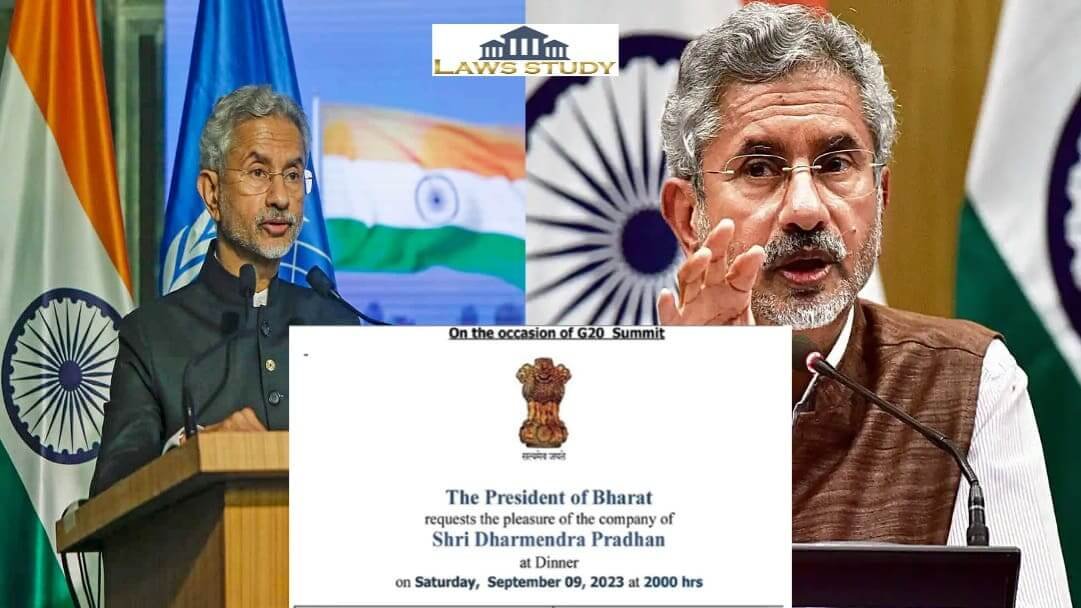External Affairs Minister S. Jaishankar recently found himself at the center of a controversy surrounding the use of the term ‘Bharat’ in official invitations for a G20 dinner.
This controversy erupted as opposition parties accused the government of creating unnecessary drama over the issue. Jaishankar’s response to this situation and his comments on the term ‘Bharat’ have ignited a debate about the use of this word in the Indian Constitution. This article delves into the key points and reactions regarding this matter.
The Controversy Begins
Opposition parties allege that the government’s actions regarding the G20 dinner invites are a form of political drama.
The government had collectively referred to their bloc as ‘INDIA’ in these invitations.
Jaishankar’s Veiled Dig
External Affairs Minister S. Jaishankar responded to the criticism from opposition parties.
He indirectly targeted the opposition by emphasizing that ‘India that is Bharat’ is explicitly mentioned in the Indian Constitution.
Constitutional Mention of ‘Bharat’
Jaishankar highlighted the presence of ‘Bharat’ in the Constitution.
He invited everyone to read the Constitution to understand the significance and connotation of the term ‘Bharat’.
Repositioning India as ‘Bharat’
The Minister was asked about the government’s intentions behind using ‘Bharat’ in the G20 dinner invitations and whether it signifies an effort to reposition India as ‘Bharat’.
Jaishankar explained that ‘Bharat’ carries a distinct meaning and understanding that aligns with the Constitution.
Embracing ‘Bharat’
Jaishankar expressed his satisfaction with the use of ‘Bharat’ as an introduction.
He asserted that the President’s prioritization of ‘Bharat’ marks a significant departure from the colonial mindset.
Jairam Ramesh’s Critique
Congress leader Jairam Ramesh responded to the controversy through a series of posts.
He confirmed the news that Rashtrapati Bhawan had issued invitations in the name of the ‘President of Bharat’ instead of the usual ‘President of India’.
Ramesh cited Article 1 of the Constitution, which states, “Bharat, that was India, shall be a Union of States.” He argued that even this ‘Union of States’ is now under assault.
Accusations of Historical Distortion
Jairam Ramesh accused the Modi government of attempting to distort history.
He claimed that ‘BHARAT’ represents the objective of Indian parties, signifying “Bring Harmony, Amity, Reconciliation And Trust.” He implied that the government is altering the essence of India.
Government’s G20 Initiatives
Jaishankar discussed the government’s initiatives to host G20 events in various regions of India.
He emphasized the importance of developing a sharper global awareness among Indians.
Inclusivity across different regions, professions, and generations is crucial for these initiatives.
Democratization of Opportunities
Jaishankar highlighted the progress made in democratizing opportunities in India over the past decade.
He emphasized that positive developments have been extended beyond the capital and metropolitan cities, reaching all corners of the country.
The Need for Global Awareness
– The Foreign Affairs Minister stressed the necessity for India to develop a heightened global awareness.
– He pointed out that understanding the world is essential to realizing the vast possibilities that lie ahead, as highlighted by Prime Minister Modi’s vision, including ‘Amrit Kaal.’
Conclusion
The controversy surrounding the use of ‘Bharat’ in G20 dinner invitations has sparked a heated debate between the government and opposition parties. While the government defends the use of ‘Bharat’ as rooted in the Constitution and a symbol of pride, the opposition accuses it of historical distortion and a departure from the traditional ‘President of India’ title.
As India navigates this discourse, the country’s path towards a sharper global awareness and inclusivity remains a significant point of discussion.

























